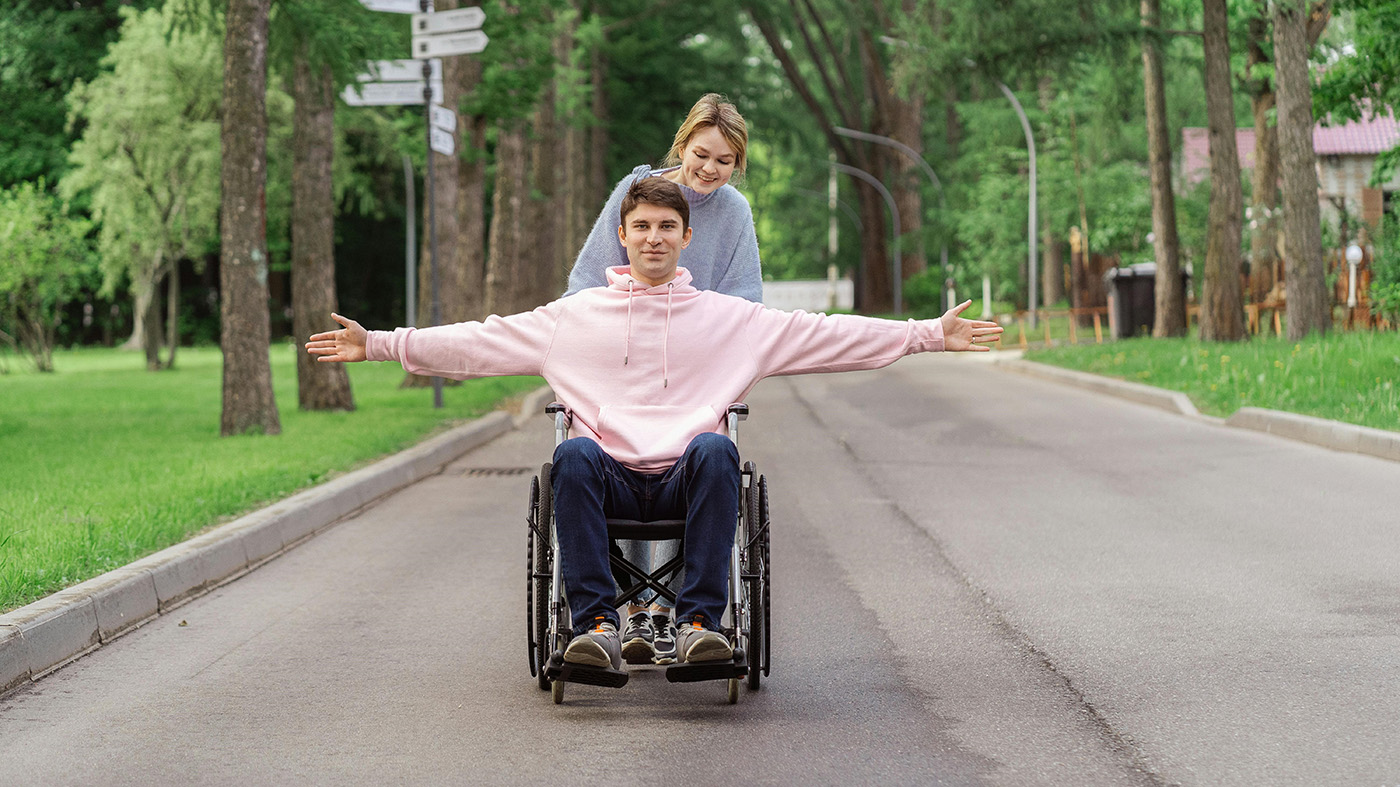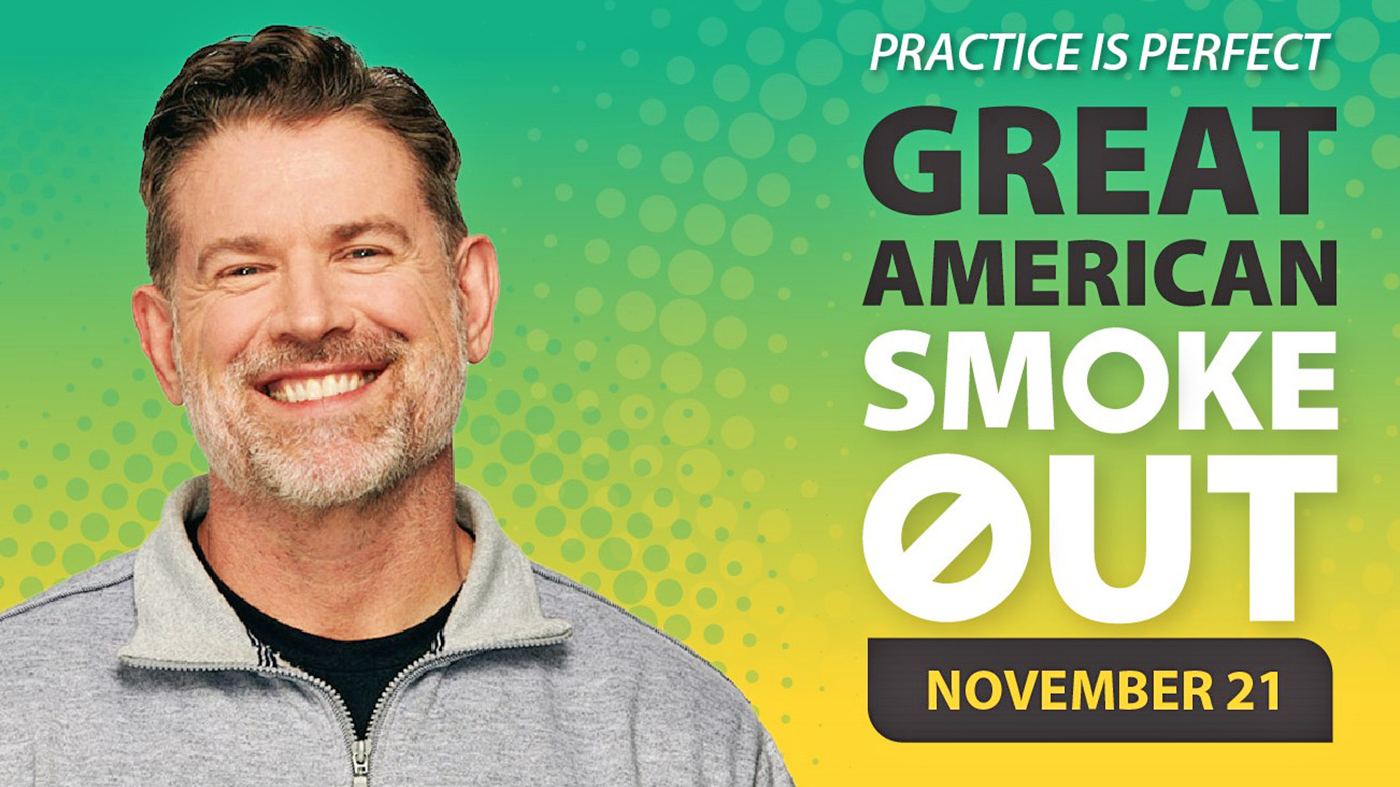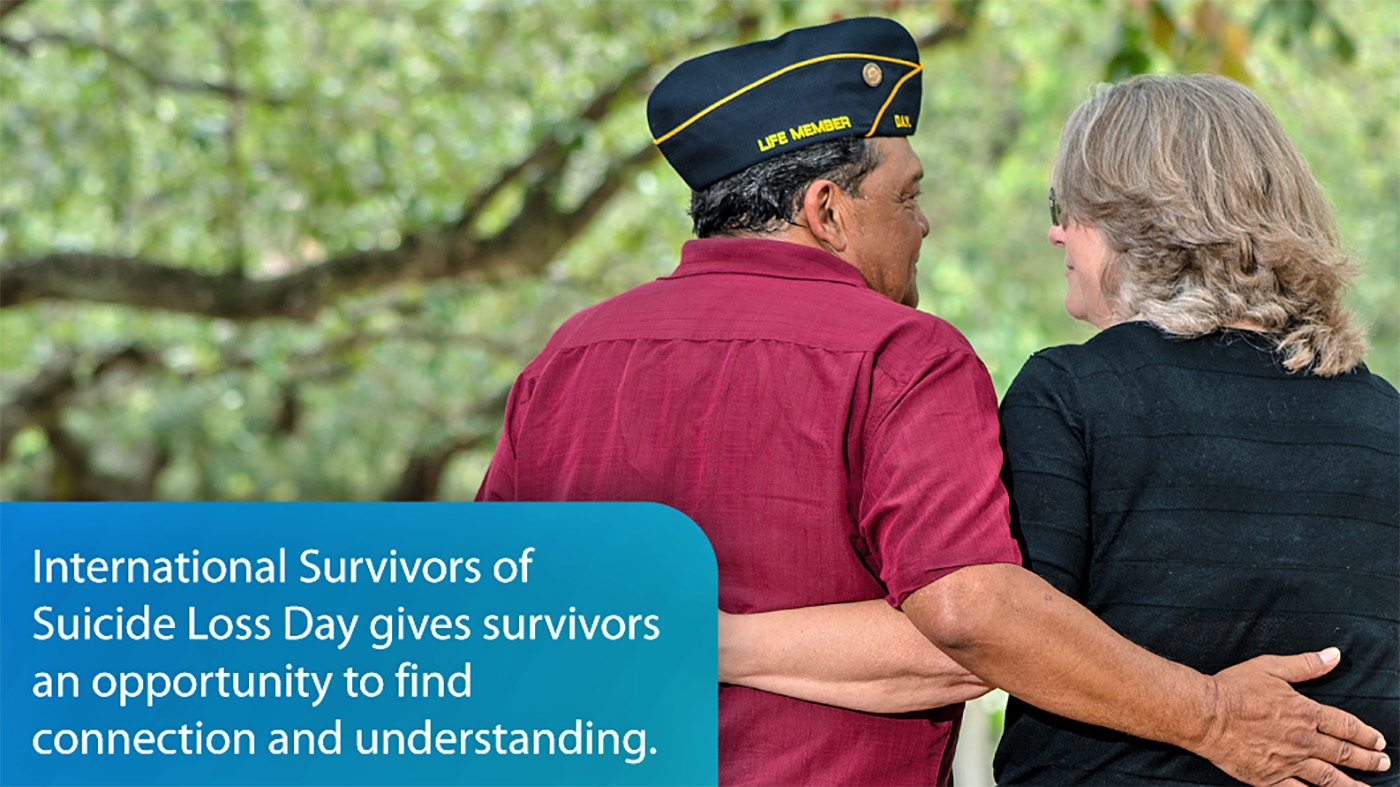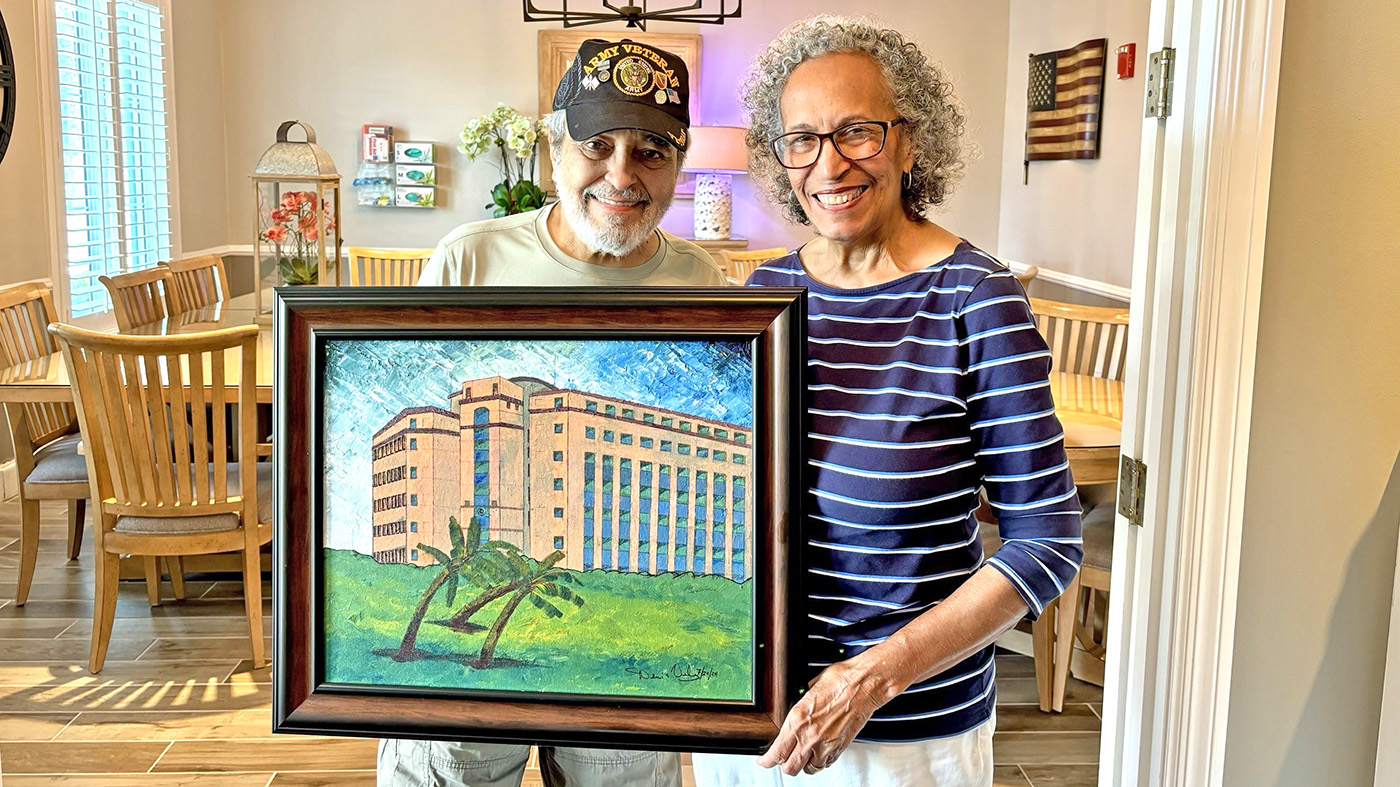A Houston VA clinic designed for Veterans with amyotrophic lateral sclerosis, or Lou Gehrig’s disease, has received designation as a Certified Treatment Center of Excellence by the ALS Association.
Michael E. DeBakey VA’s multidisciplinary ALS clinic opened in 2022 to offer Veterans a “one-stop-shop” to treat the disease which attacks nerve cells in the brain and spinal cord, progressively weakening muscle cells and often causing paralysis in the legs and arms.
“Patients with ALS often see multiple specialists and therapists, usually requiring them to go to different locations,” said Dr. Fariha Jamal, chief of neurology at Houston VA and associate professor of neurology at Baylor College of Medicine. “Our VA clinic allows Veterans to stay in one room and have our specialists cycle through that room. It is much more convenient and easier for our Veterans and is a true testament to the collaborative culture we have at Houston VA.”
Ernest Henderson, Marine Veteran, was one of the first patients to receive care in the new ALS clinic. He and his wife, Susan, were thrilled by the setup.
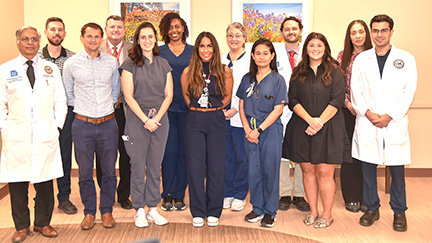
“Putting everything in one place is hugely convenient,” Susan said. “Getting around can be a challenge for us. If he had to come downtown to have six different appointments, it would totally wipe him out. This is so much easier.”
With complexities and various symptoms among ALS patients, Jamal said doctors can’t manage all their needs alone at one appointment. Veterans in Houston’s ALS Clinic can get expert care from a full array of specialists, including neurologists, pulmonologists, ENT specialists, mental health providers, speech pathologists, physical and occupational therapists, dietitians and social workers, all in one afternoon.
Veterans can also see a representative from the ALS Association and Paralyzed Veterans of America while in the new ALS clinic.
“Studies have confirmed that people with ALS who participate in multidisciplinary clinics have better quality of life and live longer,” said Jamal. “Our Veterans deserve the best and we are happy to be able to offer them state-of-the-art care in our clinic.”
ALS a service-connected disease
According to the ALS Association, those who have served in the military are approximately twice as likely to develop ALS as those who have not served. VA also recognizes ALS as a service-connected disease and provides financial and medical support to those with at least 90 continuous days of military service.
ALS disease currently has no cure, but researchers nationwide—including at Houston VA and Baylor College of Medicine—are working hard to find a cure. Meanwhile, there are medications available to help improve the quality of life for ALS patients, and Houston VA is committed to offering these Veterans top quality health care.
“Serving ALS Veterans is a great honor to me and the rest of the team,” said Dr. James Orengo, ALS specialist. “We understand the tremendous adaptation the Veteran must face dealing with this disease and we are dedicated to being there for them, to help guide them through the process and enhance their quality of life.”
Topics in this story
Link Disclaimer
This page includes links to other websites outside our control and jurisdiction. VA is not responsible for the privacy practices or the content of non-VA Web sites. We encourage you to review the privacy policy or terms and conditions of those sites to fully understand what information is collected and how it is used.
More Stories
For the Great American Smokeout, explore VA resources and learn why every attempt to stop smoking is a step toward success.
If you’ve lost a loved one to suicide, resources and support are available to help you cope during your grieving and healing.
Army Veteran Denis Velez donated a painting of his VA hospital as a way of giving back for his treatment there.

